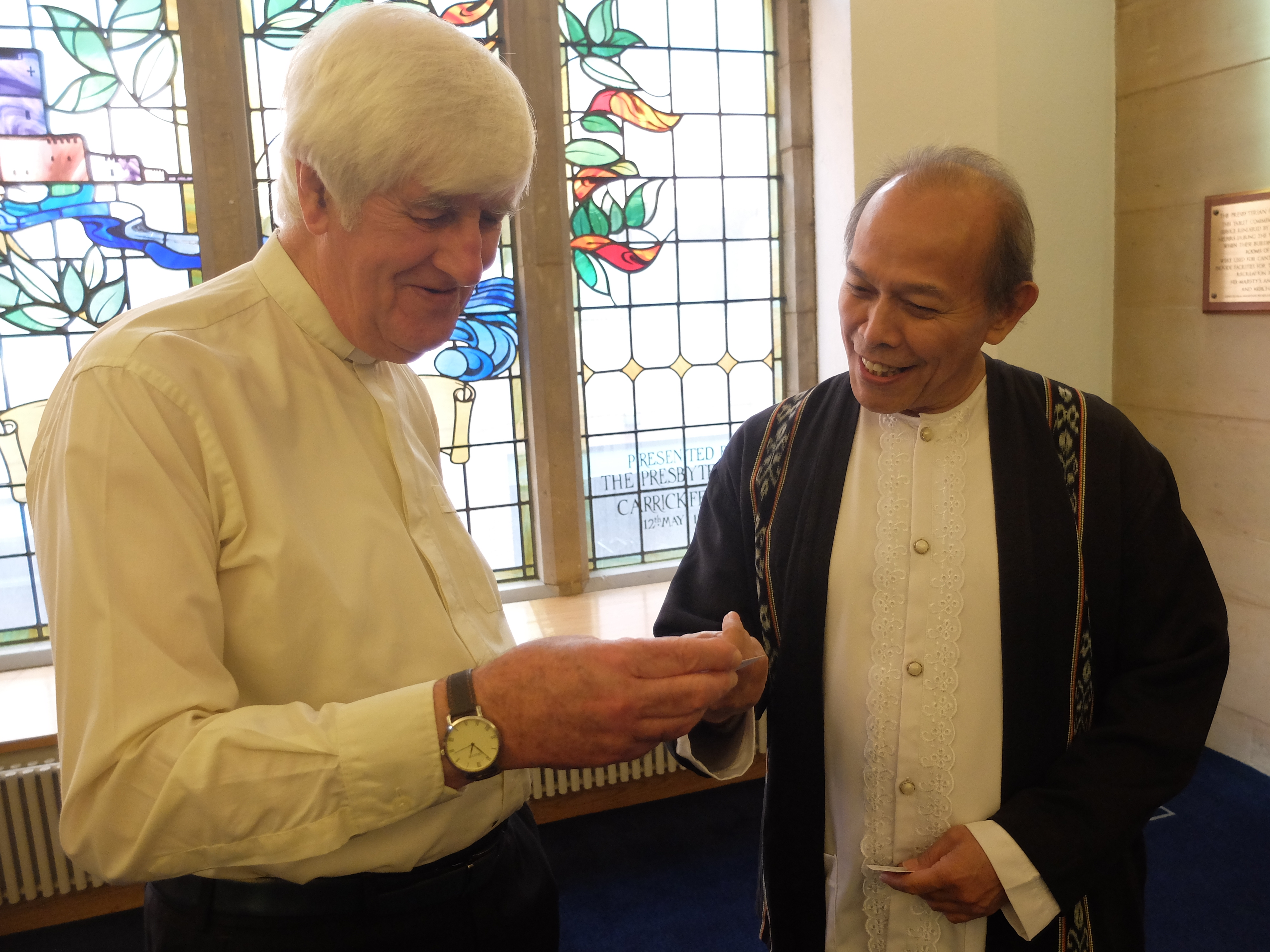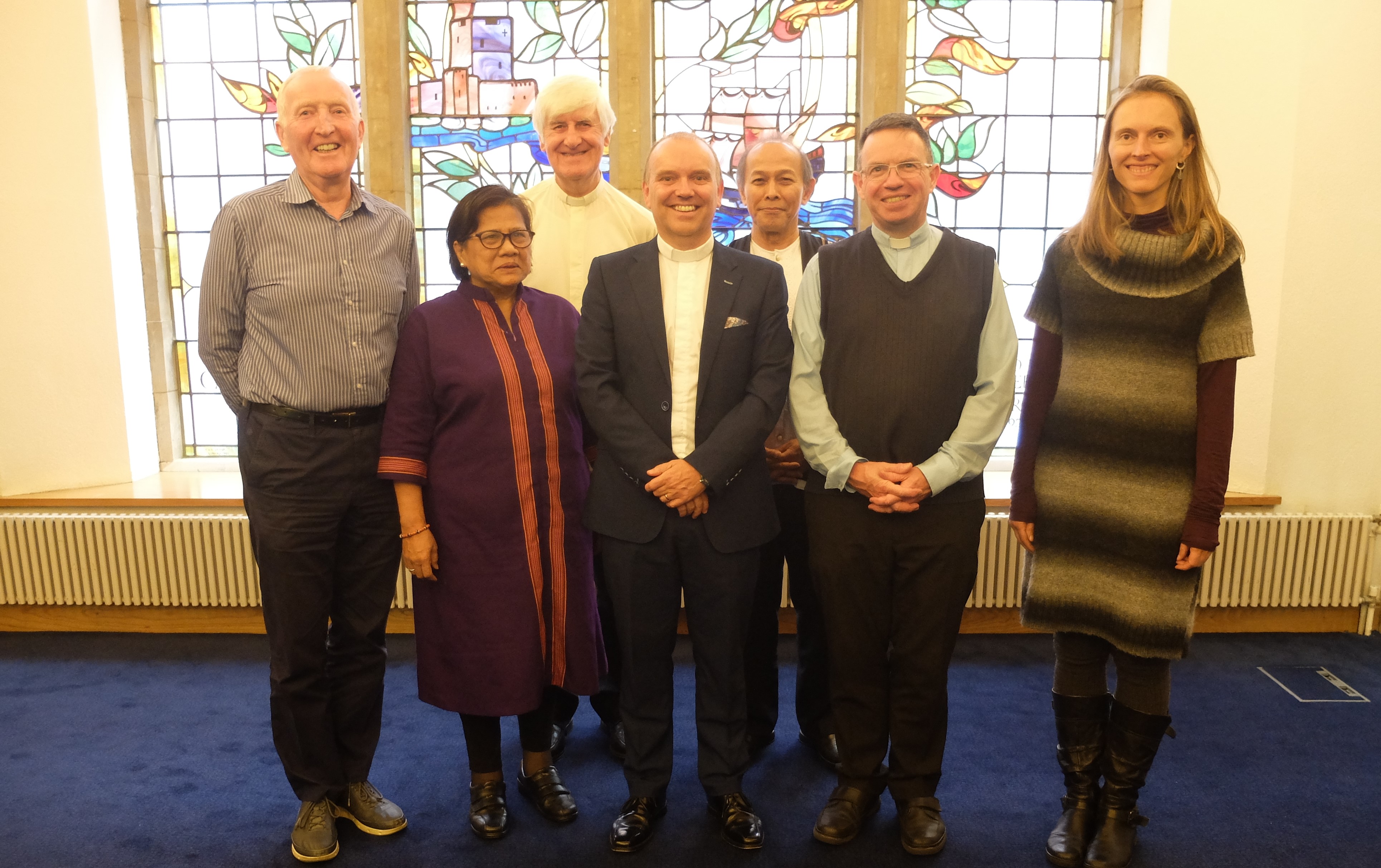Lessons in Reconciliation at PCI Headquarters in Belfast
Representatives of European churches and mission organisations who are actively engaged in Indonesia, along with representatives from the leadership of the Council of Churches in Indonesia, ended a three day visit to Belfast at the weekend with a tour around the city. They had been in Northern Ireland for the 69th Eukumindo General Assembly and Study Day on reconciliation, which was held in the Presbyterian Church in Ireland’s (PCI) Belfast headquarters.

During the General Assembly the participants were updated on aspects of the current political, social and religious climate in Indonesia, especially on the way it impacts the Christian community.
The topic of this year’s Study Day, which followed the-one day General Assembly, was entitled, ‘Journey to Peace: Taking steps to reconciliation in Northern Ireland and Indonesia’. Delegates heard from former PCI Moderator, Very Rev Dr Ken Newell, who served as a mission worker in Indonesia for three years in the 1970s, and the co-founder of the Four Corners Festival, Father Martin Magill of St John’s Parish Church on Belfast’s Falls Road.
Dr Newell, who is fluent in Indonesian, gave a personal reflection on peacebuilding and reconciliation in Northern Ireland, as did Father Martin Magill. Dr Ichsan Malik, of the Indonesia Defense University’s Samdhana Institute, delivered a paper on the key elements to reconciliation in Indonesia.

Friday’s Study Day provided a platform for studying and discussing situations into which Christians and churches could bring a biblical perspective and was an opportunity to focus on some of the practical considerations and approaches in relation to reconciliation.
In his address Dr Malik said that there were various and complex issues that threatened the unity of Indonesia in the country’s early days, “But the sources of the conflict is centred on two main issues, which are relations between groups and the absence of solutions to the existing differences.”
He said that the roots of conflict in the country stemmed from differences in religious belief, ethnic and cultural identity, as well as differences in political and economic interests. Dr Malik outlined some of the obstacles to reconciliation in his homeland, which included ‘competitive victimhood’ and ‘collective memory or historical distortion’, ‘complexity of integration’ and ‘weak leadership’.
Talking about the latter, he contrasted that with the late President Nelson Mandela of South Africa. Dr Malik said that “he chose to look ahead, immediately reconciling and building togetherness between blacks and whites. Reconciliation in Indonesia requires leaders who dare to look ahead to make a breakthrough.”
Dr Malik also explored ways of building for the future by ‘building togetherness’ as a nation, which he said involved eliminating stereotypes and prejudice, while making personal contacts and seeking a new social or shared identity. While not denying how difficult this can be, he said, “Each party must be open to expressing the truth of past events, looking for lessons and trying to forget, and ultimately forgiving all past events by looking and taking a step into the future.”
In a final observation, he said that “Remorse and extreme regret will encourage forgiveness to the opponents and willingness to co-operate with each other and even feel the same fate. The sense of shared fate is the main reason for developing togetherness as a fellow citizen.”
Indonesia, which is made up of more than 17,000 islands, making it the world’s largest island nation, has had a particularly violent past since its independence from The Netherlands in 1949. The most populous Muslim country in the world has seen inter-communal conflict, which was brought to an end with an historic peace agreement in 2005, offering a wide range of examples of peaceful relations between different ethnic and religious groups.
Organised by PCI’s Council of Global Mission, Presbyterian Moderator, Right Reverend Dr William Henry, extended a warm welcome to the visitors, explaining that the Church has been a long-standing member of Eukumindo, which was established in 1962, last hosted the gathering in 2001. “It has been nearly 20 years since we last hosted the Eukumindo General Assembly here and we were delighted to be able to welcome upwards of 40 representatives again for their annual meeting this week.
I very much hope that this coming together, in the presence of God, will have been be an opportunity to learn from one another and explore the gospel imperative of peacebuilding and reconciliation,” he said.
On Friday participants enjoyed the hospitality of Whitehouse Presbyterian Church in north Belfast.
Read more news from PCI on their website here.
